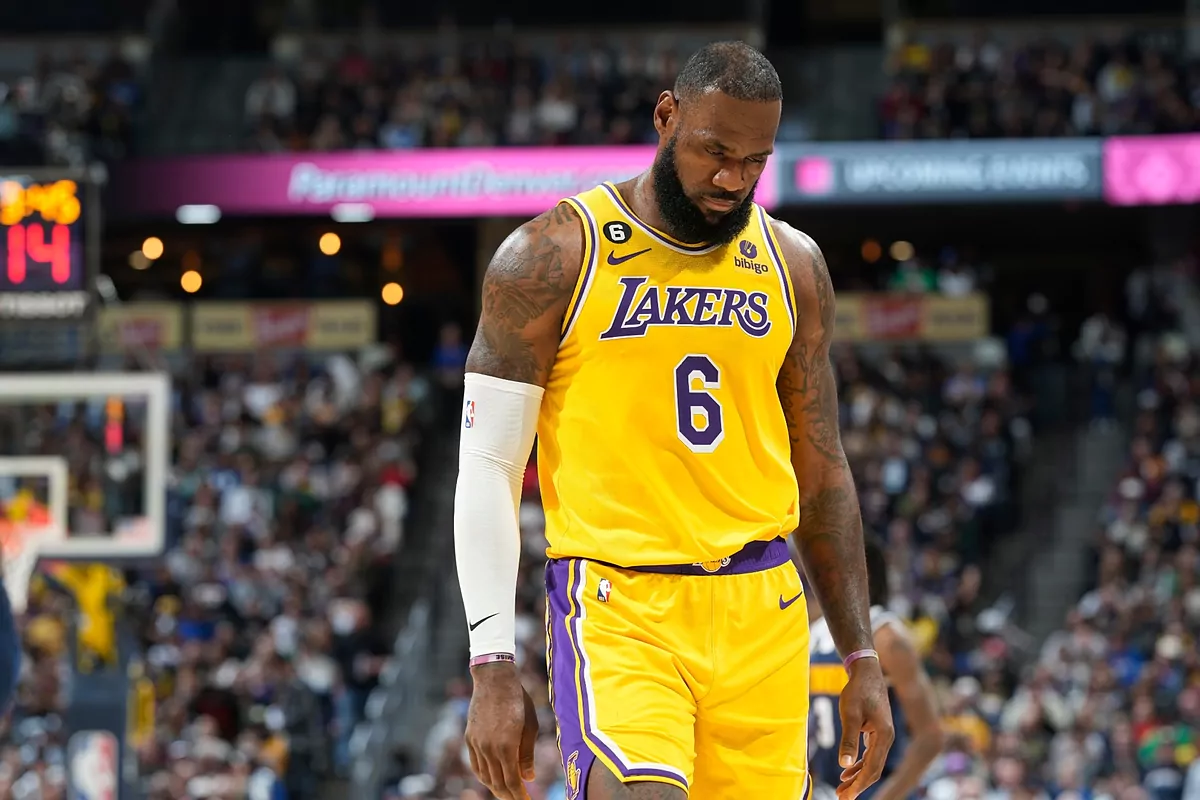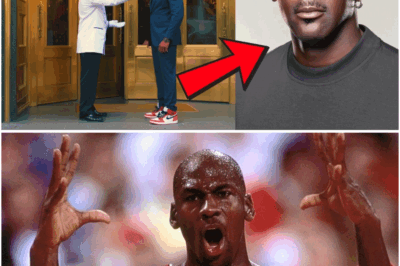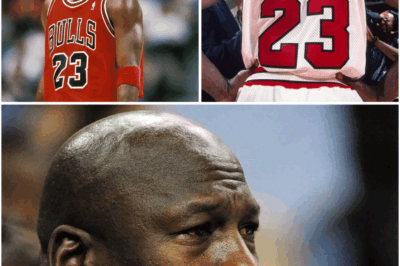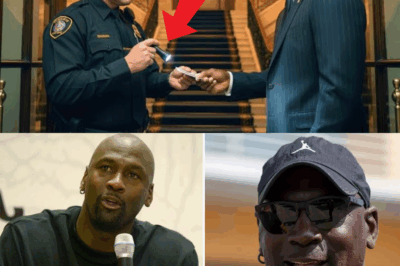The Enduring Reality of Racism: LeBron James’ Personal Experience and Its Broader Meaning
In a nation that prides itself on progress and equality, the persistence of racism continues to cast a long shadow over the lives of millions. Even those who appear to have reached the pinnacle of success are not immune to its reach. This was made painfully clear when NBA superstar LeBron James, one of the most celebrated athletes of his generation, found himself at the center of a hate-fueled act: someone spray-painted a racial slur—the N-word—across the gate of his Los Angeles home. The incident, which occurred just as James was preparing to compete in the NBA Finals, served as a stark reminder that fame, wealth, and admiration provide no shield from the realities of racial prejudice in America.

A Shocking, Yet Not Surprising, Incident
For many, the idea that a figure as prominent as LeBron James could be the target of such blatant racism might seem shocking. However, James himself expressed a different sentiment. “Surprising? No,” he said, reflecting a somber understanding of the country’s ongoing struggles with race. For James, the incident was not an isolated event, but part of a much larger, deeply rooted problem that continues to affect African Americans daily.
James articulated his feelings with clarity and pain. He noted the bitter irony of having to address questions about racism on the eve of one of the world’s biggest sporting events. “It just lets me know that it’s still here and we should all know that,” he stated. The spray-painted slur was not just an attack on his property, but on his family, his identity, and by extension, the countless others who face similar hatred, often without the spotlight that shines on celebrities.
The Broader Context: America’s Ongoing Struggle
LeBron James drew a powerful parallel to the historic case of Emmett Till, a 14-year-old African American boy brutally murdered in 1955 for allegedly offending a white woman. Till’s mother, Mamie Till-Mobley, made the courageous decision to hold an open-casket funeral, exposing the world to the horrors her son endured as a result of racial hatred. “I believe that’s why women like Emmett Till’s mom left the casket open and showed everybody in the world what her son went through because of hate,” James reflected. In invoking this painful chapter of American history, James underscored the importance of confronting racism openly, no matter how uncomfortable or distressing it may be.
The incident at his home, James suggested, could serve a similar purpose: to shed light on the real issues still plaguing the nation. If his experience, as public and painful as it was, could prompt a broader conversation about race and injustice, then perhaps some good could come from it.
Parenting in the Face of Hate
Perhaps the most heartbreaking aspect of the incident for James was its impact on his family. The home in question was not just a house; it was where his children slept, where they should have felt safe and protected. Being away from home, James lamented that he could not talk to his children face-to-face about what had happened. “The fact that I’m not home kind of hurts me a lot,” he admitted. Still, he expressed confidence that his wife, mother, and mother-in-law would help guide his children through the situation.
James spoke about the challenge of raising black children in America, of having to prepare them for a world where their skin color can make them a target. “I’m going to give them the blueprint in life, but at the end of the day they’re going to have to walk their own course as well,” he said. He acknowledged that, while he can provide guidance, his children will ultimately have to navigate these challenges themselves.
The Illusion of Immunity
One of the most striking points James made was about the illusion that success can insulate black Americans from racism. “No matter how much money you got, no matter how famous you are, no matter how many people admire you, at the end of the day being a black man in America is very frightening,” he said. The incident at his home was a vivid illustration of this truth. Despite his global fame and immense wealth, James could not escape the ugly reality of racial hatred.
This reality is not unique to James. Countless African Americans, regardless of their status or achievements, have stories of discrimination and prejudice. The experience of racism is a unifying thread that runs through the fabric of black life in America, reminding even the most successful individuals of their vulnerability.
The Need for Continued Conversation
James concluded his remarks with a call to keep the conversation about race alive, even when it is uncomfortable or painful. “If that can shed light on the whole situation and we can continue the conversation, because no matter how much money you got, no matter how famous you are, no matter how many people admire you, at the end of the day being a black man in America is very frightening and it lets us know that we got so much further to go to be equal in this country,” he said.
He emphasized the importance of confronting darkness with light, of speaking out about injustice rather than hiding from it. “You have to always shed light on things that may seem like it’s at its darkest point,” James advised. His words serve as a reminder that progress requires honesty, courage, and a willingness to face uncomfortable truths.
Moving Forward
LeBron James’ experience is a powerful testament to the enduring reality of racism in America. It is a reminder that the fight for equality is far from over, and that vigilance, empathy, and action are required from all of us. By sharing his story, James not only highlights the challenges faced by African Americans but also calls on society as a whole to confront and overcome the forces of hate and division.
As the world watched James compete on basketball’s biggest stage, the message from his home in Los Angeles resonated far beyond the realm of sports. It was a sobering reminder that, for all the progress made, the journey toward true equality continues—and it is a journey that demands the attention and commitment of every American.
News
When Fame Isn’t Enough: Michael Jordan’s Experience Exposes Hidden Racism in Elite Spaces
Michael Jordan Denied Entry to Luxury Restaurant: A Stark Reminder of Racial Discrimination in Elite Spaces The sun was high…
Michael Jordan Admits: I Used to be Racists Against Whites! – The Buzz
Michael Jordan’s Story: A Personal Struggle Against Racism and Its Lasting Impact Michael Jordan is a name that resonates far…
Asked to Show His ID at His Own Event, Michael Jordan’s Response Stuns the World
The Security Guard Who Changed Michael Jordan’s Life—and His Own On a bustling Friday night in Chicago, the Michael Jordan…
From Forgotten to Family: How a Marine’s K9 Saved More Than Lives
A Marine’s K9 Freezes at a Forgotten Suitcase — What They Found Inside Changed Everything The Arizona sun was already…
Trust Broken: German Shepherd Reveals the Truth About the Family Nanny
German Shepherd Attacks Nanny — The Shocking Truth Behind It Left the Parents Speechless! Most people see dogs as loyal…
The German Shepherd Refused to Leave the Drain… Until a Woman Discovered What Was Hidden Below!
The German Shepherd Who Wouldn’t Leave the Drain: A Story of Grief, Guardianship, and New Beginnings Rachel had just finished…
End of content
No more pages to load












